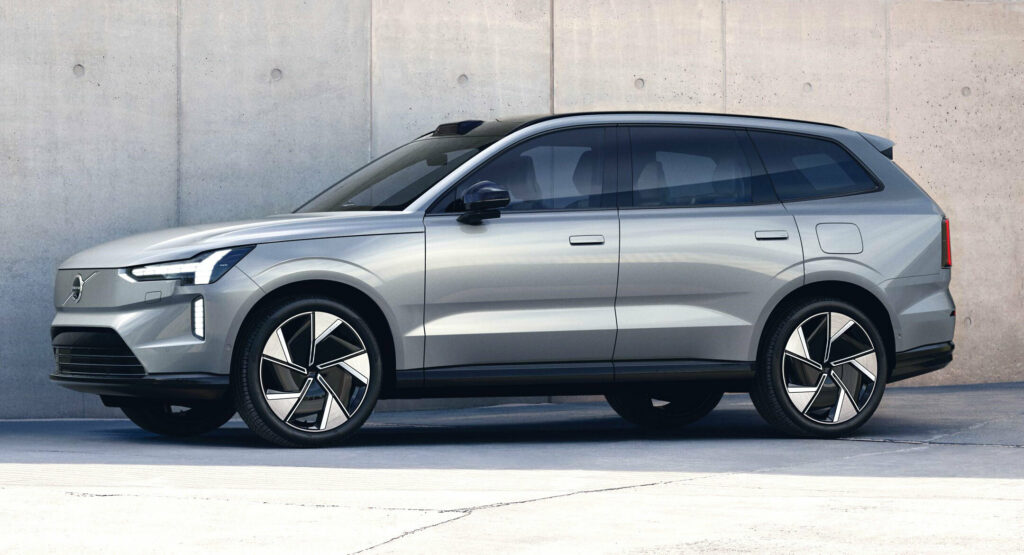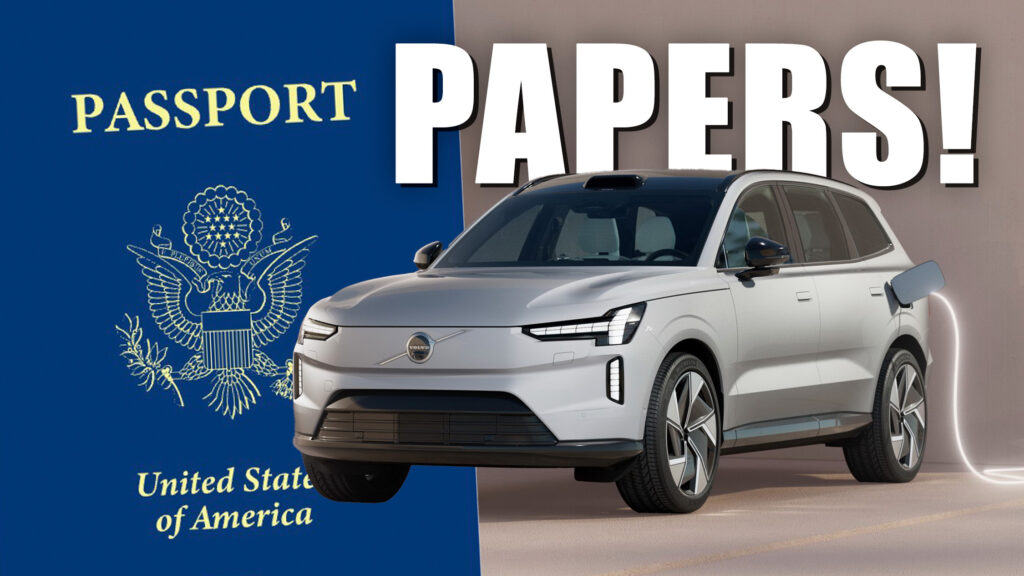- Volvo says it will introduce battery passports this year, becoming first automaker to do so, report says.
- Passports showing origin of battery components will be mandatory in Europe from 2027.
- Volvo’s passport tech comes from UK startup, Circulor, which has received funding from the automaker and others, including Jaguar Land Rover.
Humans can’t travel far in the world without showing a passport proving their identity and country of origin, and later this year Volvo’s EV batteries will become the first to get something similar.
Volvo is launching a passport scheme for the batteries on its South Carolina-built EX90 SUV well ahead of the documentation becoming mandatory in Europe in February 2027, according to Reuters. The passport will confirm the origin of the raw materials that went into the battery, details about the recycled content and the carbon footprint.
Related: 2025 Volvo EX90 Combines Electric Power With Three-Rows For $76,695
But the passport will also show information about a battery’s health, which will help provide peace of mind for buyers when the cars hit the used market, and make it easier to assess the value of a used EV.
Owners will be able to access a basic version of the passport by scanning a QR code on the driver’s door, the report says, while a more detailed version will be handed to authorities, and presumably be accessible by dealers.
The tech behind the EX90 passports, which Volvo says will eventually be rolled out across its entire EV lineup and adds $10 to the cost of a car, Reuters reports, has been developed by UK-based startup, Circulor, and makes it possible to trace battery materials from a car right back to the mine they were dug from.

It can even check through the entire supply chain and look at how much of a supplier’s energy is provided by renewable sources to calculate a total carbon footprint figure for the pack. Volvo has invested in Circulor, as has Jaguar Land Rover.
America hasn’t yet said it will demand the same kind of passport system that the EU will require in 2027, but given the battery-sourcing rules that now need to be met for a car to qualify for EV subsidies, it seems likely that both carmakers and the government will see the benefit of introducing passports soon.
Volvo’s EX90 was scheduled to go on sale in 2023, but the automaker delayed the launch by a year to fix problems with its Lidar software. The three-row EV is now expected in dealerships this fall.




